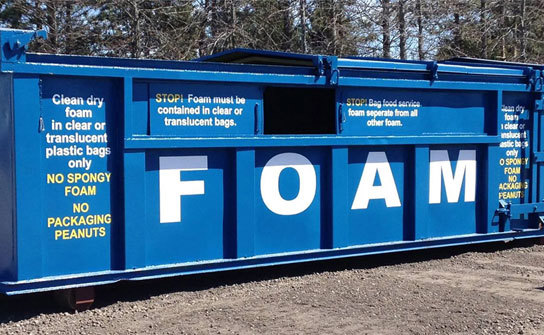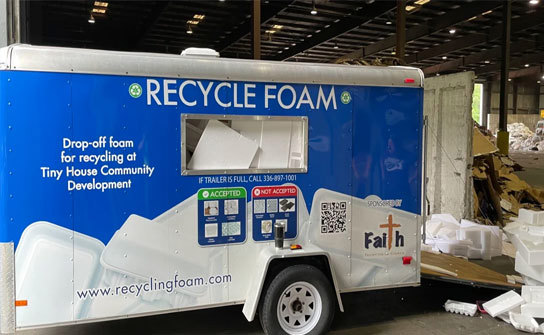 October-06-2023
October-06-2023
View: 1

Advanced foam recycling technology is changing the game in the food industry.
The global food industry has long been grappling with sustainability challenges, from packaging waste to energy consumption. As the world becomes increasingly environmentally conscious, businesses are under growing pressure to adopt eco-friendly practices. In this context, one area of innovation that stands out is the application of advanced technology to recycle foam in the food industry. This groundbreaking technology not only reduces waste but also minimizes the industry's environmental footprint.
The Foam Problem
Foam packaging has been a staple in the food industry for years due to its excellent insulating properties, ensuring that hot foods stay hot and cold foods remain cold during transit. However, its widespread use has come under scrutiny due to its non-biodegradable nature, leading to environmental concerns. Traditional recycling methods for foam, such as mechanical recycling, often face challenges because of contamination and the lightweight, bulky nature of foam materials.

Advanced Foam Recycling Technology
Advanced foam recycling technology is changing the game in the food industry. This technology involves innovative approaches that address the limitations of traditional recycling methods. Here are some key aspects of this technology:
Chemical Recycling: One of the most promising advancements is the use of chemical recycling processes. These methods break down foam materials into their basic chemical components, which can then be used to create new, high-quality materials. This approach circumvents the challenges of contamination and the difficulty of recycling lightweight foam materials.
Enhanced Sorting Systems: State-of-the-art sorting systems equipped with artificial intelligence (AI) and machine learning algorithms have greatly improved the efficiency of foam recycling. These systems can accurately identify foam materials, even in mixed waste streams, ensuring that the recycling process remains uncontaminated.
Compactors and Densifiers: Innovative compactors and densifiers have been developed specifically for foam recycling. These machines significantly reduce the volume of foam waste by compressing it into denser forms, making transportation and storage more efficient.
Closed-Loop Systems: Some forward-thinking food industry players are adopting closed-loop recycling systems. In these systems, foam packaging materials are collected after use, recycled, and then used to produce new packaging materials. This circular approach minimizes waste and reduces the need for virgin materials.

Benefits for the Food Industry
The application of advanced foam recycling technology in the food industry offers several compelling benefits:
Environmental Impact: By diverting foam waste from landfills and incineration, this technology significantly reduces the carbon footprint of the food industry. It also helps conserve valuable resources and reduces the demand for petroleum-based plastics.
Cost Savings: While investing in advanced recycling technology may have an initial cost, the long-term savings can be substantial. Reduced waste disposal fees and the potential for revenue generation from selling recycled materials can lead to significant cost benefits.
Consumer Appeal: Sustainable practices are increasingly important to consumers. Adopting advanced foam recycling technology can enhance a brand's reputation and appeal to eco-conscious customers.
Regulatory Compliance: As governments around the world tighten regulations related to waste management and environmental impact, embracing innovative recycling technology can help food companies stay ahead of compliance requirements.
Advanced foam recycling technology is a game-changer for the food industry. By addressing the challenges associated with foam waste, such as contamination and bulkiness, this technology offers a sustainable solution that benefits both businesses and the environment. As it continues to evolve and gain traction, we can expect to see more food industry players embracing this technology, contributing to a more sustainable and eco-friendly future for the sector.